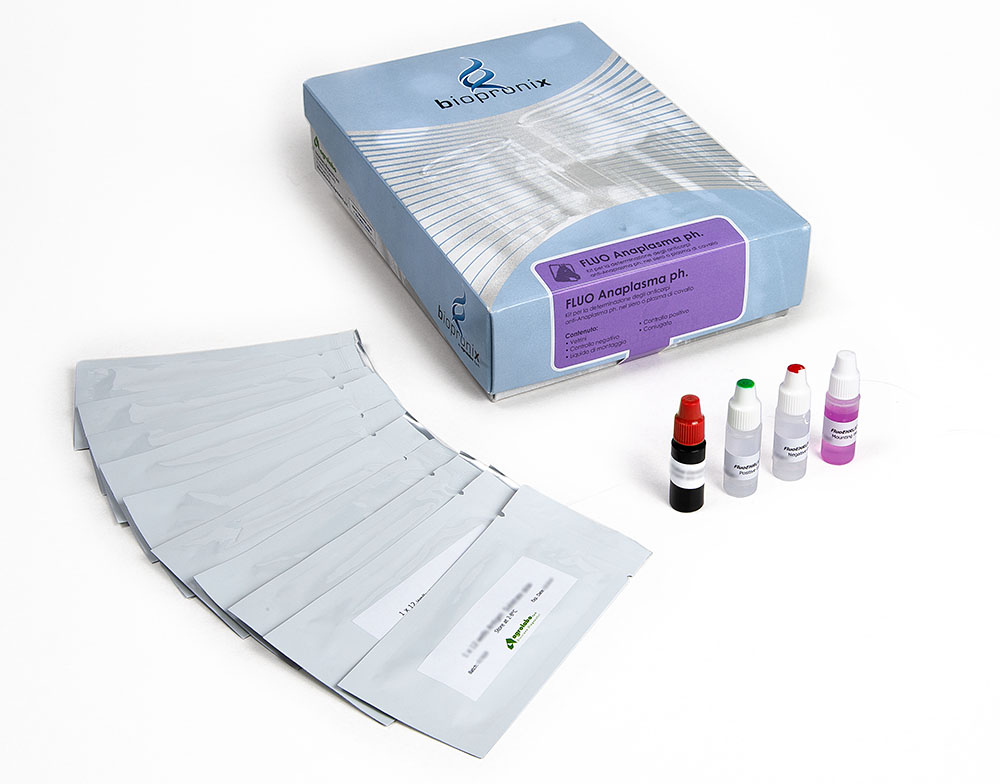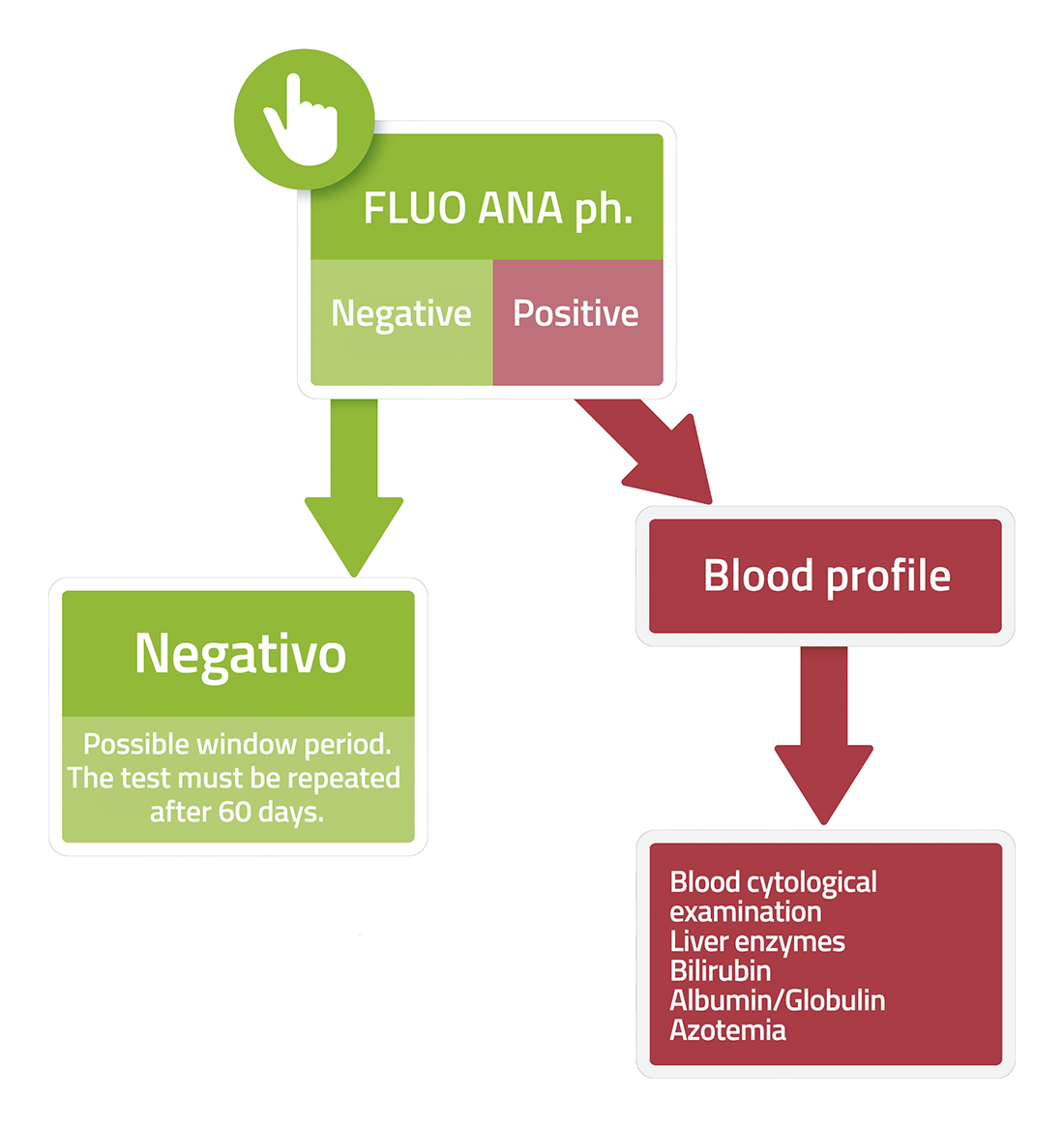FLUO ANAPLASMA ph. HORSE
IFA kit for the detection of anti-Anaplasma phagocytophilum IgG antibodies
FLUO ANAPLASMA ph. HORSE is a test based on the immunofluorescence technique for the detection of anti-Anaplasma phagocitophylum IgG antibodies in horse serum or plasma samples.
Equine granulocyte anaplasmosis is a disease caused by the bacterium Anaplasma phagocytophilum (formerly known as Ehrlichia phagocytophila and Ehrlichia equi) which infects white blood cells and is transmitted by ticks of the Ixodes genus. Anaplasmosis is a ubiquitous disease and its presence depends on the geographic distribution of the vector that transmits it.
A.phagocytophilum is a gram-negative obligate intracellular bacterium, which is mostly localized in neutrophilic granulocytes, but also, in rare cases, in eosinophilic granulocytes.
The incubation period is 3-14 days. Clinical symptoms include general weakness with fever that can last up to 10 days, anorexia, lethargy, limb edema, petechiae, jaundice, muscle pain, reluctance to move and ataxia.
The severity of symptoms varies with age and with the duration of the disease. In older horses, symptoms occur more aggressively than in younger ones.
The course of the disease varies from 3 to 16 days; the infection can be self-limiting even in untreated subjects; the rare cases of death are usually associated with co-infections or secondary infections. Healed horses develop immunity for at least 2 years and do not become carriers.

